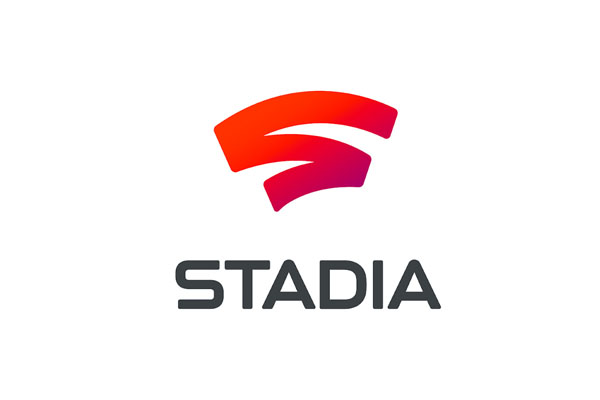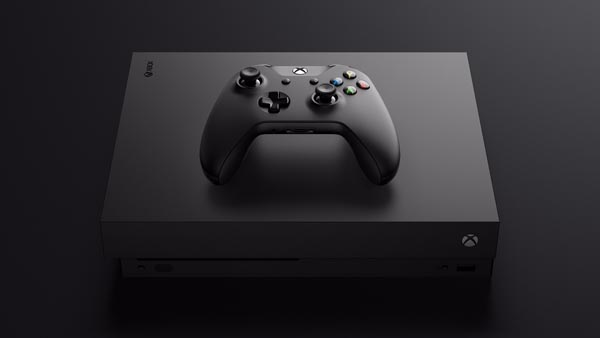With the release of Google Stadia cloud gaming is once again a hot subject. The concept is pretty straightforward — have remote servers handle the brunt work of processing game activity and rendering the video, taking signals from the players controller remotely and sending the resulting audio and video of the game in action back to the player, all via the internet.
There’s just one problem with this; the internet.

The logic of cloud gaming is sound — all the technology for it to work exists, and clearly when put into practice it is a reality — you can, right now, play a game using remote servers to do all the brunt work, just as described above.
The thing is, while it does work, depending on where you live and what your internet infrastructure is like, it doesn’t necessarily work well.
Let’s really get a grasp on how the internet works. Take your device, that connects to a router, followed by a modem; or an internet gateway of some kind. In either case, you have this local infrastructure that any signals to and from your device must go through.
Once it’s at the Modem though, you’re good, right? Nope. You then have the local infrastructure to contend with, eventually hitting a local exchange of some form, and eventually on through your Internet Service Provider to the internet proper – again, propagating through different systems to physically make it from you to the target server.
Then consider the route in reverse. All these steps, among other factors slow down internet packets and create the phenomena known as latency, commonly called lag.
This latency results in a delay which many people notice and can take them out of the experience. It makes playing a game frustrating, as by the time you have the chance react to something, the event is already over and done with. This has been common in online gaming in forever, but only with regards to inputs, and has usually been minimized with games accounting for this. For something where the video is remotely rendered and then sent to you, there’s a bit more all to come and go, meaning more total data at any one moment which needs to be handled, and any issues with those packets of data and make the whole ordeal feel like an exercise in futility.
Honestly, it’s incredible that data gets sent as quickly as it does, and how little real latency there is in practice — the internet is a bloated mess, and yet round-trip communications can happen within a few thousandths of a second.

Still, there is a delay, and even in the best of situations this delay is often noticeable. Hell, for consideration, depending on a persons home equipment delay between an action happening on, let’s say, my Xbox One, and my computer being streamed the consoles output can be quite noticeable, and that’s locally — imagine the experience were I to try to do such over the internet.
Granted, better equipment would improve this problem, but therein is the issue — not all equipment can be upgraded so trivially. I, for example, am stuck with a specific, pretty poor quality internet gateway for the foreseeable thanks to a few problems. What’s more, local infrastructure is in need of improvements, and many ISP’s want to directly charge the customer to fix these issues, rather than re-invest profits into these repairs.
This isn’t the case everywhere. In more “trendy” metropolitan areas, or areas prominent with gentrification things like the internet infrastructure int he area will be brought up to top-notch current standards, like fiber gigabit, with minimal sources of latency or points of failure. That, however, isn’t the case for many areas.
So, what we’re left with is a very shot-in-the-dark situation for many, especially those not tech savvy. How are they to know what they need for a quality experience? Will it be worth the cost for top-tier internet from their ISP just to play games like this? What if they have limited service? While there are options to decrease the data usage of many of these cloud gaming platforms, it still doesn’t change things.
That isn’t even touching on the bandwidth costs proper — you need a good bit of data going up to the remote servers and especially coming down, as you’re streaming the game video and audio as well as sending your inputs. Those with limited data may well quickly use up their allotment, and those with lower speed connections won’t get as good a video signal as they would even with a lower-end TV set and a local game console.
Still, let’s say everything is okay for you. Lag is still unavoidable, and while some people may not notice a small bit, others might notice even the tiniest fractions of miliseconds – me, for example. Having a history of playing music games where absolutely precise timing is required has given me (and others) a sensitivity to even the tiniest delay and with cloud gaming services it virtually always shows.

There are, of course, attempts at negating even this, in the form of predictive rendering of frames based on what option a player is liable to select, but still, this will only get you so far and to some feels like the game “playing itself” which is something no gamer likes.
It’s a complicated thing, really this will always be an issue, at least until a point where the nature of the internet renders delays to be not much more than the round-trip travel time of the signal at the speed of light.
I’m not even going to try to get into problems associated with inconsistent connections — some people have internet connections which regularly drop out, even if only for a short time, and there’s no real graceful way to handle such a situation, and likely this will ruin a persons game experience unless the remote service pauses everything and waits for you to come back. Even then, it’s quite the interruption, one which wouldn’t happen with local hardware.
What I’m getting at is this: Cloud Gaming works, sure, but the nature of internet creates an unavoidable latency issue which may be incredibly minor to some users, or major for others. Everything between you and the remote server has to work well under relatively high demand, and depending on the person playing even a minor issue could be a deal-breaker.
Don’t get me wrong — if you have something like Google Stadia and it works fine for you, awesome. Just don’t dare negate someone else’s bad experience just because your experience is fine — it’s completely dependent on the internet connection of the user and a myriad of factors beyond their control. Consider yourself lucky if it is a good time for you, because for many it’s mediocre at best, and the benefits that many claim it has aren’t worth the sacrifices in game experience needed by many.
Yeah, I’m aware for many nothing I’m saying here is new, but I wanted to kind of compact my thoughts (as I do with many things) for what perspective it may provide for anyone reading.

1 Comment
Add a Comment